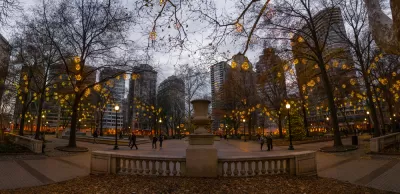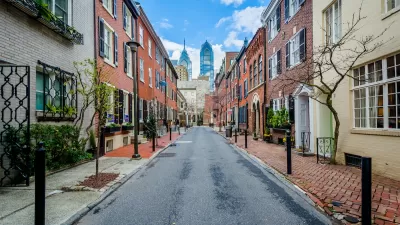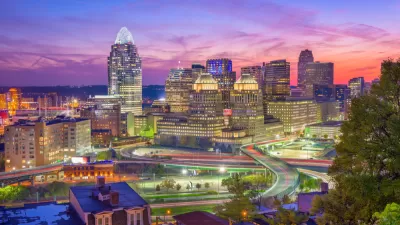Philadelphia's city council passed the city's first-ever residential development impact tax, a plan that could boost the city budget by $9 million a year.

With a new 1% tax on residential development in Philadelphia, city leaders are moving to fund a $400 million bond package that supports building more affordable housing. The tax will be levied on new construction and is accompanied by a 10% reduction in commercial abatement. The reforms, part of a package known as the Neighborhood Preservation Initiative, will fund a variety of community development and affordable housing programs. In a move seen by many as appeasing developers, the city council also voted to push back the commercial abatement reduction by a year.
Building industry groups are split on the new tax. While some admit that the city needs revenue for affordable housing, others maintain that any new taxes threaten the economic development and jobs created by construction. Philadelphia's director of finance, Rob Dubow, argues that the tax could raise $15 million in its first two years, a much-needed injection of cash into the city's coffers. The commercial abatement reduction is projected to eventually raise $5-7 million per year.
With a poverty rate of 25%, the highest of any large U.S. city, Philadelphia desperately needs affordable housing and community development programs that address inequities and support low-income residents.
FULL STORY: Philly passes first-ever development impact tax, delays abatement reductions for another year

Study: Maui’s Plan to Convert Vacation Rentals to Long-Term Housing Could Cause Nearly $1 Billion Economic Loss
The plan would reduce visitor accommodation by 25,% resulting in 1,900 jobs lost.

North Texas Transit Leaders Tout Benefits of TOD for Growing Region
At a summit focused on transit-oriented development, policymakers discussed how North Texas’ expanded light rail system can serve as a tool for economic growth.

Using Old Oil and Gas Wells for Green Energy Storage
Penn State researchers have found that repurposing abandoned oil and gas wells for geothermal-assisted compressed-air energy storage can boost efficiency, reduce environmental risks, and support clean energy and job transitions.

Private Donations Propel Early Restoration of Palisades Playground
Los Angeles has secured over $1.3 million in private funding to restore the Pacific Palisades playground months ahead of schedule, creating a modern, accessible space that supports community healing after recent wildfires.

From Blight to Benefit: Early Results From California’s Equitable Cleanup Program
The Equitable Community Revitalization Grant (ECRG) program is reshaping brownfield redevelopment by prioritizing projects in low-income and environmental justice communities, emphasizing equity, transparency, and community benefits.

Planting Relief: Tackling Las Vegas Heat One Tree at a Time
Nevada Plants, a Las Vegas-based nonprofit, is combating the city’s extreme urban heat by giving away trees to residents in underserved neighborhoods, promoting shade, sustainability, and community health.
Urban Design for Planners 1: Software Tools
This six-course series explores essential urban design concepts using open source software and equips planners with the tools they need to participate fully in the urban design process.
Planning for Universal Design
Learn the tools for implementing Universal Design in planning regulations.
Ascent Environmental
Borough of Carlisle
Institute for Housing and Urban Development Studies (IHS)
City of Grandview
Harvard GSD Executive Education
Toledo-Lucas County Plan Commissions
Salt Lake City
NYU Wagner Graduate School of Public Service





























